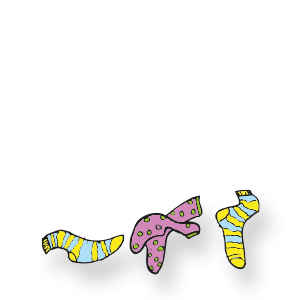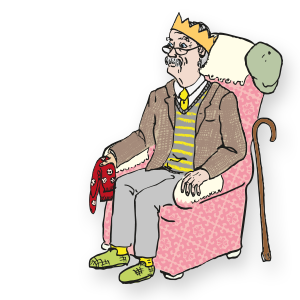

Oh Cringe!

Have you ever felt really embarrassed by something someone has said or done and wonder what on earth made them say or do that? Have you ever been embarrassed or felt a tinge of a cringe with something your mum or dad said or did? I know I have! Written by Ollie Coach, Belinda Wells.
How Embarassing!
We all have a persona - the public face we want people to see - what we would like them to think about us. Who we would like them to think we are. And we also have things that we feel are private and not to be shown to others who we may not know well. Perhaps so as not to let people see our perceived faults or failings.
We as humans like to belong, to be included. So, if we think someone may be looking at us, laughing at us or we are involved in some way in something others don't like then we want to steer clear of the situation. If we feel embarrassed, it is because we are thinking about how others perceive the situation, what they are thinking, feeling or seeing about us.
As children or teenagers, we may feel embarrassed by our parents because we are still connected or intertwined with them. We are like them - yet we are trying to form our own identity too, so we want to break away from them and from what we see. In some situations, teenagers are perhaps unsure of themselves and so may be surprised at how their parents are not so unsure and don't show the same inhibitions. So, they feel embarrassed because it is not something they would do or say. As adults who are embarrassed by our parents maybe we are worried that we may become like them and see the things in them that we do not want to be!
We are perhaps looking into what we may think is our future self and don't want the people witnessing to see us as we may become. We have formed our own identity, but the parent now embarrassing us is reeling us back in by that invisible piece of string that keeps us connected - and cringing.
Embarrassment is a two-way process. Even as adults we may embarrass our parents. And our children may embarrass us too, both when they are children or adults! It is all to do with how we see ourselves and what things we think might be revealed to others by the actions of those connected to us. We may think 'did my child really do or say that?' It might show as a reflection on us, of our parenting! It may belittle or undermine us.
As adults, if we are emotionally intelligent, we will recognise that not everyone is going to paint us with the same brush as our parents or see us as mini versions of the person who is doing or saying something, we find embarrassing. We are hopefully resilient enough to be able to deal with our embarrassment and not be undermined by the odd faux pas or gaff.
But for children, it is much more difficult to handle. They are as yet so unsure of so many things. They are trying to find and develop their own identity. Their hormones are changing. Their emotions are developing. Their brains are growing and changing from the child's brain to an adult one. They are developing social awareness.
They are trying to gain independence and at times they see, hear or feel their parents as being overprotective, taking over, or interfering with who they think their peers believe them to be, or indeed who they think they are becoming.
And just as the young child learning to do their shoe laces for the first time, but taking ages to do, it will get annoyed if we take over and do it for them, so the teenager will get annoyed if we step into their social circle and do or say things, when they feel it is their set of friends and would rather be left to interact on their own. They may worry that their peers will single them out as being different, as not conforming to the social norm they are creating. They may see the parent as speaking for them, when they are trying to have their own voice.
As children develop into their teens, they are influenced far more by their peers than by their parents. They want to be seen as a person not as a child. They don't like being corrected in front of their friends. They don't like parents to be too affectionate towards them in front of their friends as this can make them feel as if they are being treated like a young child. None of this in any way means they don't love us as their parents. Just that they are changing the way in which they need to interact with us and want us to interact with them, at least in front of others. They are practicing their skills. They are practicing being an adult. And as with anything in live, we have to practice becoming good at something. So we must allow them to practice in order to become and be competent.
It really can be very hard for us to let our children grow up and allow them to make their own mistakes, take their own risks. But it is something we do need to do. It is how they will learn, not only to become an adult, but learn how they will treat and parent their own children.
And if we allow them to grow and change without trying to keep them as our 'little ones' they will also learn to respect us. To appreciate us for allowing them to be who they are, not who we would like them to be. To love us for allowing them to take risks and learn by their own mistakes, to grow up into their own person.
They will learn and appreciate that we want to keep them safe - but will value our trust in them allowing them take responsibility and to begin to make their own decisions. And in return, they may tolerate us much more in our old age, when we do or say things that may not sit so well with them, as intrinsically they will not have the fear of becoming like us - the parent they wanted so much NOT to be like!
Belinda Wells, Ollie Coach 
Belinda is an Ollie Coach and Foster Carer. Previously a Primary School Teacher, she now has over 20 years’ experience working with children. Her interests are psychology, how we think and why we behave as we do, and she loves learning and writing. Belinda enjoys seeing the difference her work as an Ollie Coach can make to the children and families she works with.
To get in contact with Belinda email Belinda.wells@ollieandhissuperpowers.com

